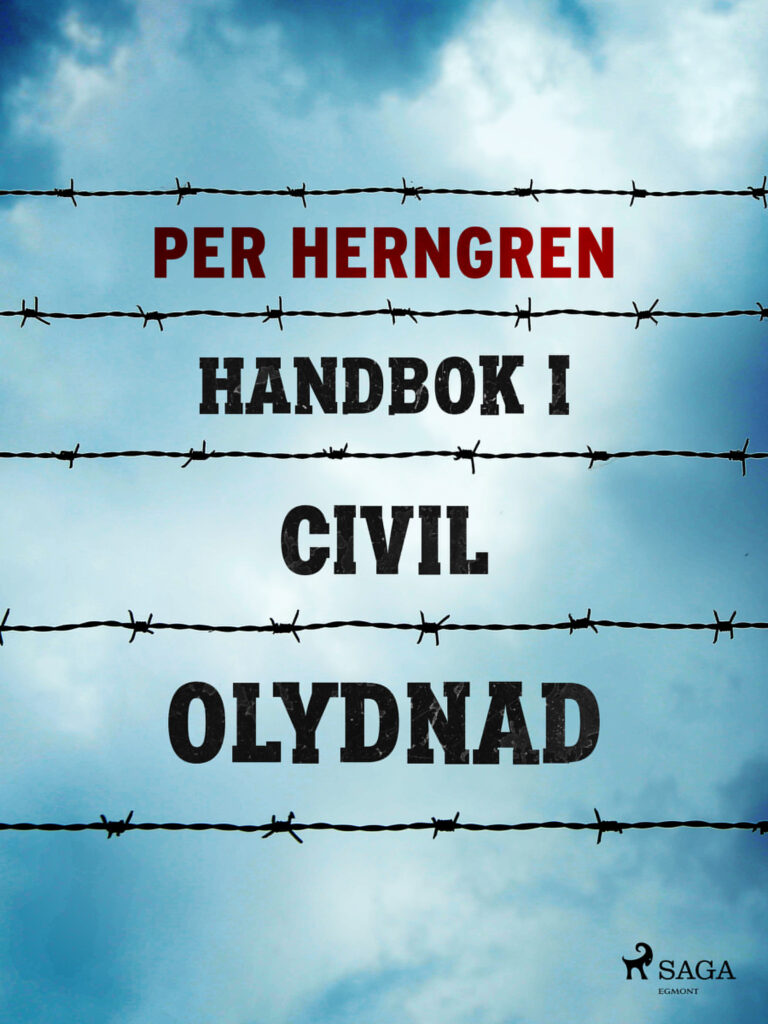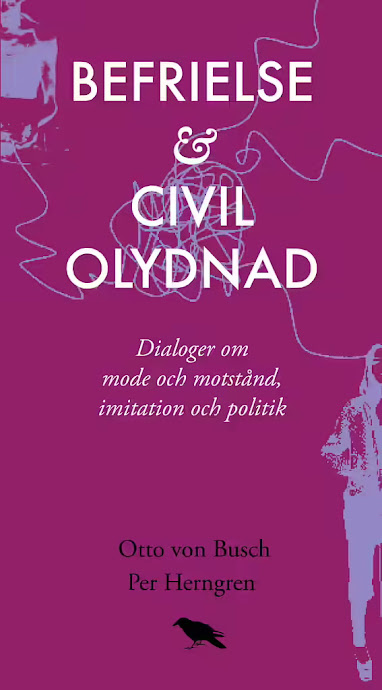Den borgerliga revolutionen avsätter
kungen som diktator. När enhet inte längre kan återfinnas i centrum, genom suveränen,
så blir staten en organisation bland andra organisationer. För att undvika
detta söker tidiga borgerliga filosofer olika vägar för att skapa enhet i
myllret runt staten. Redan tidigt uppfinns civilsamhället som medel för att
skapa nationell enhet.
1640 visar Thomas Hobbes hur civilsamhället
skapar enhet i mångfalden. Med hjälp av civilsamhället kan myllret agera som en
person. Myllret blir på så sätt själv med i att skapa enhet ihop med statens
maktapparat: “to frame the will of them all to unity and concord amongst
themselves. This union so
made, is that which men call now-a-days a body politic or civil society; and
the Greeks call it polis, … which may be defined to be a multitude of men,
united as one person by a common power, for their common peace, defence, and
benefit.”
I och med civilsamhället blir nationalstaten en individ.
Medborgare och organisationer samlas runt staten
Femtio år efter Hobbes, 1690, preciserar John Locke att de
som i sin mångfald enas i lydnad till samma regering utgör civilsamhället. De är
både del av civilsamhället och de är med och skapar civilsamhället.
Civilsamhället härleds därmed inte ur centralmakten så som i
föreställningarna om kungaväldet. Civilsamhället skapar sig själv och den samlas runt staten.
“Those who
are united into one body, and have a common established law and judicature to
appeal to, with authority to decide controversies between them, and punish
offenders, are in civil society one with another: but those who have no such
common appeal, I mean on earth, are still in the state of nature, each being,
where there is no other, judge for himself, and executioner; which is, as I
have before shewed it, the perfect state of nature.”
Olydiga utesluts ur civilsamhället
Ifall civilsamhället skapar enhet
och underordning, vad gör man då med de som vägrar bli ”ett”, som vägrar lyda,
som inte underordnar sig? John Locke menar att den som vägrar lyda lagen inte
heller kan vara medlem i civilsamhället.
“No man in
civil society can be exempted from the laws of it: for if any man may do what
he thinks fit, and there be no appeal on earth, for redress or security against
any harm he shall do; … , and so can be no part or member of that civil
society”.
Från liberal dogm till vetenskaplig dogm
Thomas Hobbes och John Locke kan förstås som den borgerliga
nationalismens teologer. De utvecklar en filosofi som ska rättfärdiga
nationalstaternas framväxt. De skapar en tro på nationalstaten.
Det är först Adam Ferguson (1723-1816) och Adam Smith
(1723-1790) som översätter utopin om civilsamhället till vetenskapligt språk.
De utvecklar en sorts tidig sociologi.
Efter Ferguson och Smith blir en borgerlig ideologisk
föreställning som ska rättfärdiga nationalstaten alltmer dominerande även som
vetenskaplig världsbild. En politisk dogm översätts till både teori (
containervärdsbild
etc) och till metod (
metodologisk
nationalism etc).
Nationalismen införlivar vetenskapen i sin religion.
Och vetenskap införlivar nationalismen.
Nationalismens trossystem görs till vetenskap. Sociologi,
nationalekonomi och statsvetenskap hamnar därmed i resonans med flaggritualer,
nationella högtidsdagar och nationell identitetspolitik.
Medborgare skapar makten: Ferguson
1767 analyserar Adam Ferguson hur en sammanhållen ordning
kan produceras genom okoordinerade handlingar av många individer.
Individer och civilsamhälle får inte detaljstyras av en härskare. I
civilsamhället styr individerna sig själva. Lydnad och ordning uppkommer genom
att individen tar på sig regerandet.
“Our notion
of order in civil society being taken from the analogy of subjects inanimate
and dead, is frequently false; we consider commotion and action as contrary to
its nature; we think that obedience, secrecy, and the silent passing of affairs
through the hands of a few, are its real constituents.”
Medborgaren blir i civilsamhället del av regerandet. Resultatet
innebär inte mindre lydnad än i ett toppstyrt kungavälde eller i en diktatur. Lydnaden
(makten) kan mycket väl öka just genom att den blir mer decentraliserad.
“Had
mankind, therefore, no view but to warfare, it is probable that they would
continue to prefer monarchical government to any other; or at least that every
nation, in order to procure secret and united councils, would intrust the
executive power with unlimited authority. But happily for civil society, men
have objects of a different sort: and experience has taught, that although the
conduct of armies requires an absolute and undivided command; yet a national
force is best formed, where numbers of men are inured to equality; and where
the meanest citizen may consider himself, upon occasion, as destined to command
as well as to obey.”.
Per Herngren
2015-08-09, version 0.1
Referens
Adam Ferguson, An Essay on the History of Civil Society, 1767.
Michel Foucault, The Birth of Biopolitis, Lectures at the Collège de France, 1978-79, New York: Palgrave Macmillan, 2008..
- Michel Foucault, The Birth of Biopolitis, Lectures at the Collège de France, 1978-79, New York: Palgrave Macmillan, 2008.
- Per Herngren, Nationalstaten är religion: Rousseau, 2015.
- Per Herngren, Civilsamhället samlas runt staten: Hobbes, Locke, Ferguson, 2015.
- Per Herngren, Existerar civilsamhället? Michel Foucault, 2015.
- Per Herngren, Civilsamhället som regeringens danspartner: Michel Foucault, 2015.
- Per Herngren, Protesten ger staten makt: Michel Foucault, 2015.
- Per Herngren, Kan kritisk lydnad begränsa staten? Foucault & civilsamhället, 2015.
- Per Herngren, Civilsamhället rekryterar oss att regera: Michel Foucault, 2015.
- Per Herngren, Existerar Sverige? Foucault & mikromakt, 2015.
- Per Herngren, Frihet konsumeras av stat och företag: Foucault, 2015.
- Per Herngren, Träna bort container-världsbilden, 2008.
Thomas Hobbes, The Elements of Law Natural and Politic, 1640.
John Locke, The Second Treatise of Civil Government, Chapter VII, Of Political or Civil Society, 1690.
Fotnoter
[1] Thomas Hobbes, The Elements of Law Natural and Politic, 1640.
[2] John Locke, The Second Treatise of Civil Government, Chapter VII, Of Political or Civil Society, 1690.
[3] John Locke, The Second Treatise of Civil Government, Chapter VII, Of Political or Civil Society, 1690.
[4] Per Herngren Träna bort container-världsbilden, 2008, http://perherngren.blogspot.se/2008/03/trna-bort-container-vrldsbilden.html
[5] Adam Ferguson, An Essay on the History of Civil Society, 1767.
[6] Adam Ferguson, An Essay on the History of Civil Society, Section V, 1767.
[7] Adam Ferguson, An Essay on the History of Civil Society, Section V, 1767.






